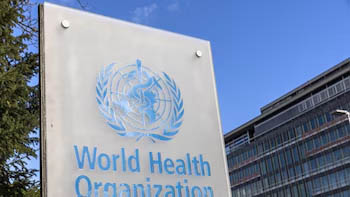WHO launches global framework on pathogens with Indian contribution

India: The World Health Organisation (WHO) has introduced a new global framework aimed at streamlining investigations into the origins of new and re-emerging pathogens that have the potential to cause epidemics or pandemics. Developed by the Scientific Advisory Group for the Origins of Novel Pathogens (SAGO), the framework seeks to address existing gaps in outbreak investigation methods and establish an integrated approach to studying pathogen origins. Indian scientists have made significant contributions to the development of the framework, particularly in key areas such as animal-human interface studies and genomic analysis. These themes are meant to understand how pathogens evolve and transmit, which is essential to prevent future outbreaks.
The framework outlines six technical elements that provide guidance for investigations, including initial epidemiological studies, research on human disease patterns, and laboratory safety protocols. These investigations are designed to begin as soon as an outbreak is detected, initially focusing on areas where the first cases are identified. Early identification of the source of the pathogen can help prevent the spread and reduce the likelihood of a larger outbreak, WHO said in a report. WHO has emphasised the importance of assembling multidisciplinary teams, including experts in clinical medicine, microbiology, epidemiology, veterinary science and data science. It said these teams will be able to conduct various parallel investigations depending on the specific outbreak and collaborate with international organisations such as the Food and Agriculture Organisation of the United Nations (FAO), the United Nations Environment Programme (UNEP) and the World Organization for Animal Health (WOAH).
While this framework provides a clear structure for investigations, it emphasises flexibility, allowing teams to adjust their approach based on real-time developments. The apex global public health agency said transparency and regular communication between national and international authorities are key to ensuring that findings are shared quickly, leading to timely public health interventions. The World Health Organisation plans to update the framework periodically as new challenges emerge in the global health landscape.





